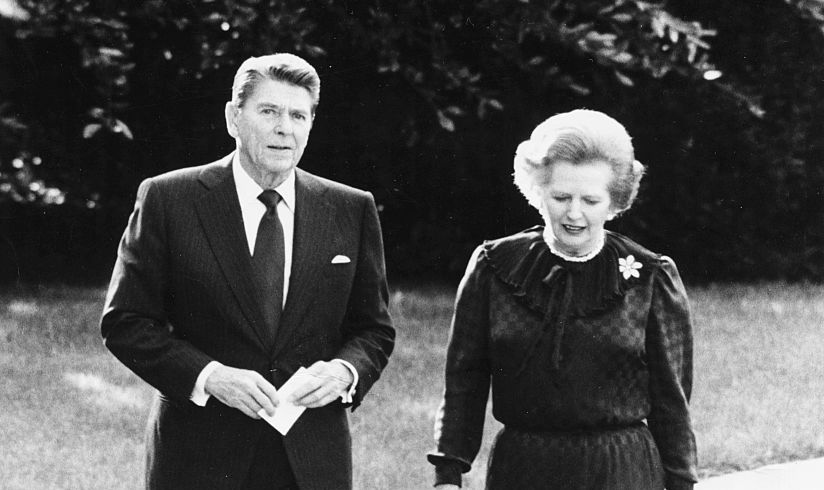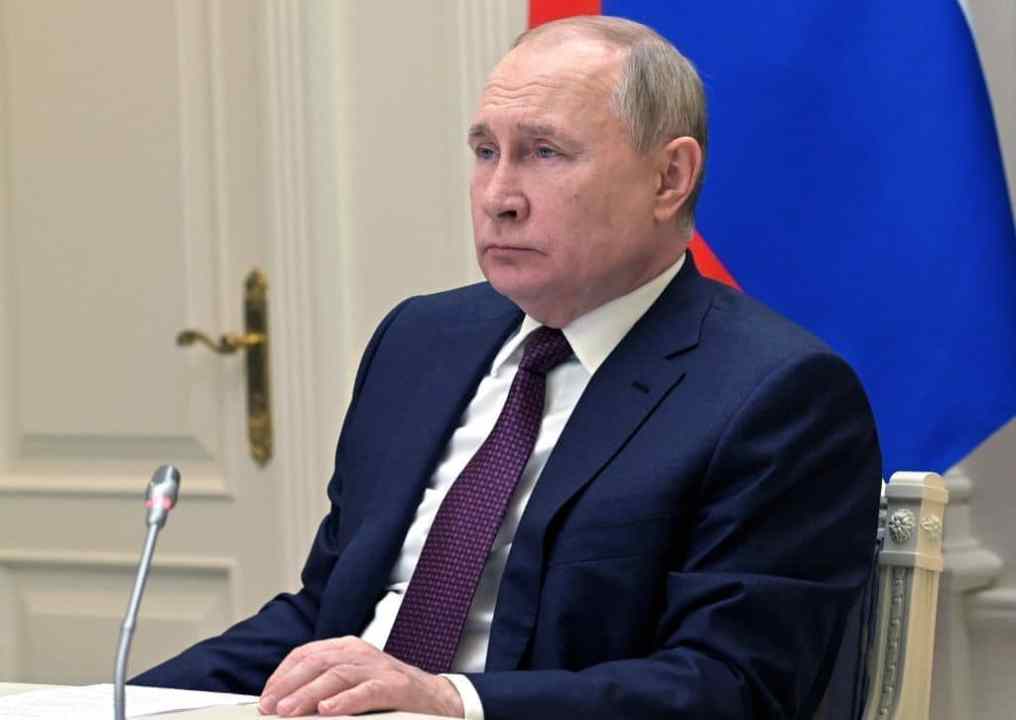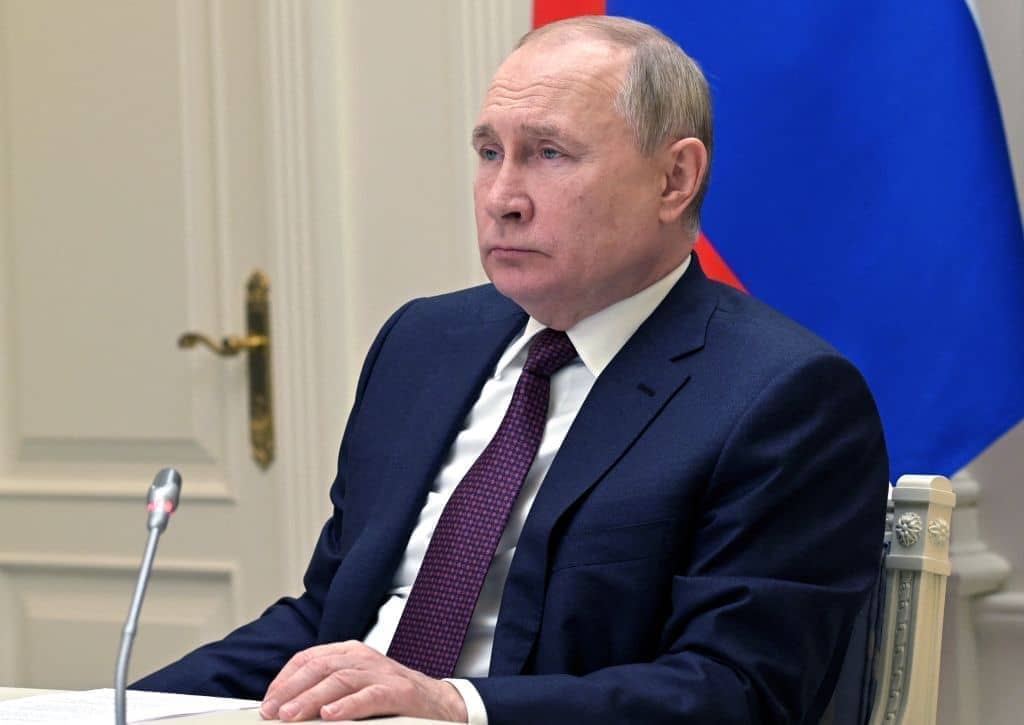Only the Russian people can decide how long Putin remains in the Kremlin, but the invasion of Ukraine will likely shorten his reign. In a lengthy interview when he assumed power 22 years ago, Putin answered a question about the forced resignation of German Chancellor Helmut Kohl by saying that ‘after 16 years, any people – including the stable Germans – get tired of a leader’. Russians have been more patient, but they didn’t expect to be led into pariah status.
Change could come from within the political elite, many of whom are aware how counterproductive this war is for Russia, and some of whom feel shame for the suffering inflicted on Ukraine. They will recall that when the Soviet leadership replaced Nikita Khrushchev in October 1964, one of the charges brought against him was that he had undermined Soviet prestige and risked starting a nuclear war by installing missiles in Cuba. Putin has inflicted still greater damage on Russia’s international standing, complete with hints at the use of nuclear weapons. His brutal invasion of Ukraine will rank high in a future list of crimes and blunders of Russian leaders.
Even if the Russians win militarily in Ukraine, it’s hard to see how they can win politically. Ukraine will be extraordinarily difficult for them to control. And should Putin harbour the ambition to intervene militarily in any other European country, they would find it ungovernable.
Change could come from within the political elite, many of whom are aware how counterproductive this war is for Russia
A crucial difference between the Soviet takeover of East-Central Europe and today was the organisational existence then and absence now of Communist parties in every country. Their leaders and members were eager to provide government at every level. They accepted Soviet leadership of the International Communist Movement and granted Moscow the last word on interpreting Marxism-Leninism, the body of doctrine that united them. It’s one thing to have a loyal band of Communist followers, and something else entirely to imagine Putin’s doctrine will cut much ice in Ukraine or elsewhere in Europe. By definition, Russian nationalism can appeal only to Russians – and a Russian messianism to only a small minority of them.
Putin has expressed concern for Russians in Ukraine and Ukrainians whose first language is Russian. It’s true, though he exaggerated, that at various times in the post-Soviet era, they’ve been treated disrespectfully. But the brutal bombardment of residential areas of Russian-speaking Kharkiv shows the shallowness of Putin’s solicitude. And if we grant some substance to Putin’s account of how the territory of the Ukrainian state came to assume the shape it has, it’s still a nonsense to conclude from this that Russians and Ukrainians were, and are, one people.
It also ignores the extent to which a sense of national identity is not fixed, but changes over time. The desire for separate statehood in Ukraine accelerated dramatically in 1991. In the Soviet March referendum that year, over 70 per cent of Ukrainian respondents voted to remain in a ‘renewed Union’, one in which there were competitive elections and with much power being devolved to the republics. By 1 December the same year, more than 90 per cent voted for national independence. Resistance to the Russian invasion has deepened Ukrainians’ sense of nationhood and commitment to statehood.
Politically counterproductive for Russia though the war on Ukraine has been, we should be wary of an assumption that the more European countries join Nato, the safer the world will be. During the Cold War, politicians in both East and West gradually learned to be wary of bellicose talk, and of bellicose action. They were aware that in periods of high tension, nuclear war could result from misperception, human error, or technical malfunction.
Western leaders missed a historic opportunity in the early 1990s when their relations with Russian leaders were based on trust. Mikhail Gorbachev declared in his ground-breaking 1988 United Nations speech that people of every country had the right to decide for themselves what kind of political and economic system they wanted. In 1989 the peoples of East-Central Europe took him at his word, as those countries became non-communist and independent and the Berlin Wall fell without a shot being fired by a Soviet soldier.
By 1992 there was no communist country in Europe, no international communist movement, no Warsaw Pact – and no Soviet Union. The reasons for Nato’s existence had evaporated. There should have been fresh security structures devised to preserve European peace. Building on the experience of the Commission on Security and Cooperation in Europe, the aim should have been a security architecture embracing the United States and Canada along with all the European countries, including newly independent Ukraine and, crucially, Russia.
There was never the least chance of Nato attacking Russia militarily unless a Nato country was attacked. But its extension to Russia’s state borders has led to feelings of humiliation and apprehension in Russian military-security circles. Democratic Russian politicians warned in the 1990s that Nato enlargement would have baleful consequences for their country’s political development, but they were ignored.
For those who thought that joining the Nato alliance was necessary to combat possible Russian expansionism, this has been a self-fulfilling prophecy. Today, Nato is far from redundant, though that doesn’t make its endless expansion politically wise. And the Russian leadership has already achieved the opposite of what they intended by strengthening support for joining Nato in non-member states.

Putin underestimated the strength of Ukrainian resistance and the extent to which war would leave Russia ostracised. Yet, this is absolutely the wrong time for any western politician to be gung-ho. The Cuban missile crisis ended peacefully not because ‘Khrushchev blinked first’, as the triumphalist version has it, but because President Kennedy rejected military advice to launch an all-out attack on Cuba. In a negotiated compromise, the US obtained withdrawal of all Soviet missiles in exchange for American agreement not to invade Cuba and, in a secret part of the deal, to remove American missiles from Turkey.
The focus now is rightly on counteracting Putin’s aggression in Ukraine, but the time must come when Russia becomes part of a new dialogue and the search for mutual security. The alternative is to live with the constant risk of miscalculation leading, in times of high tension, to global catastrophe. Margaret Thatcher, advising Ronald Reagan on what he should say at his first summit meeting with Gorbachev in Geneva in 1985, recommended the president tell the Soviet leader that ‘you are entitled as we are to feel secure’ and that ‘the world cannot be safe for one of us unless it is safe for both of us’. Such sober judgments should be kept in mind if there is to be any chance of achieving a secure peace and perhaps even what President Bush called ‘a Europe whole and free’.







Comments